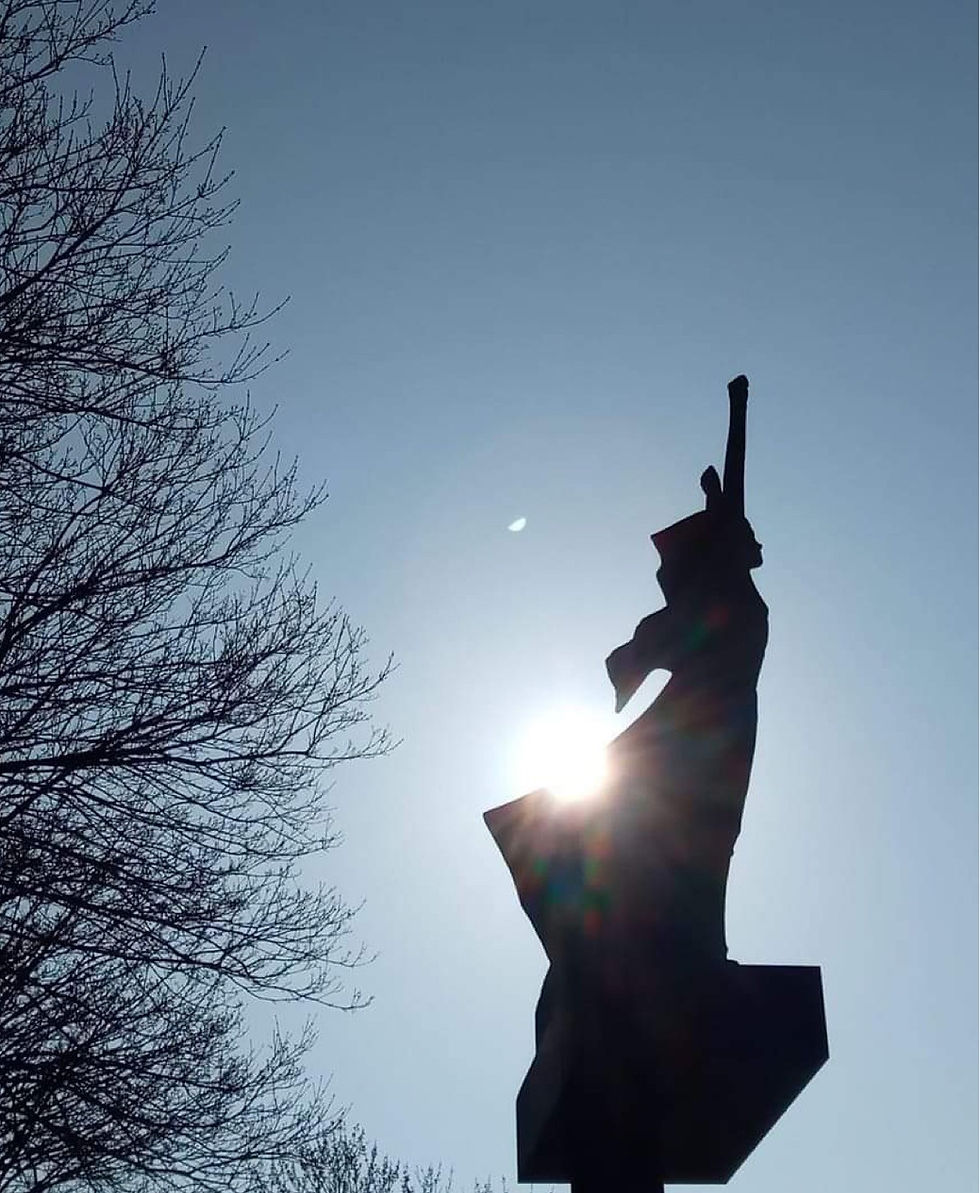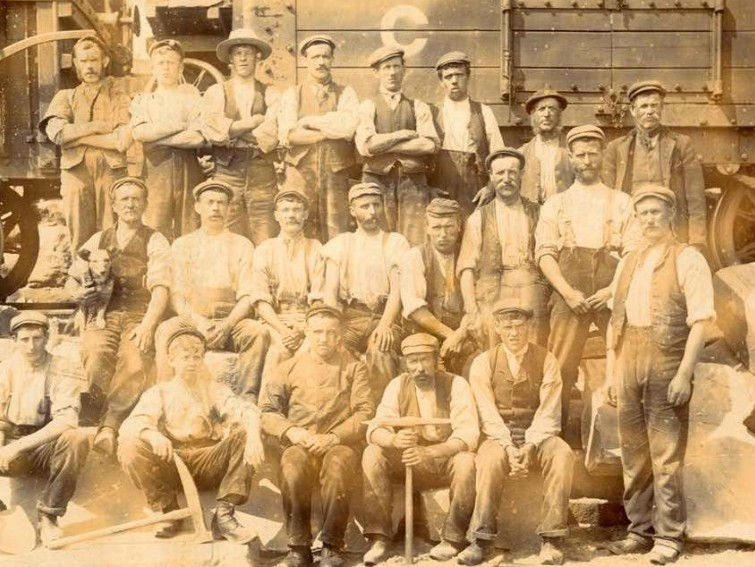The bogus election - and the 'Peoples' Parliament'
- jessjones655
- Feb 6, 2025
- 4 min read

Our 'reflections' series continues: here, retired minister Erik Cramb recalls a remarkable episode in the politics of Jamaica, where he lived in the early 1980s
After the violent 1980 election in which an estimated 800 people were killed in the political violence, the two major parties, Jamaica Labour Party (JLP) and PNP (People's National Party), agreed that there would be no future election until the electoral role had been overhauled.
While this revision of the electoral role was in progress, Prime Minister Edward Seaga broke the electoral pact in 1983 and called a snap election on 25th November when Michael Manley (pictured) was in Europe. Seaga set Thursday 15th December as polling day.
These were the days before the internet or mobile phones and it was not until, I think, the Saturday night that Manley was able to get back to Jamaica. One of the first thing he did was to send motorcycle messengers all over the island on Sunday summoning the clergy to a meeting in the evening in Kingston at the famous Pegasus Hotel. Hardly a ‘socialist’ venue I thought, but then, who’s perfect. It was 40 plus years ago and this timetable might not be exact, but it was certainly true that the clergy were the first group outside of the PNP executive that he chose to address. He said that there were three possible responses the PNP could make to the call for what became known as the Bogus Election. The first option was to boycott the election totally, the second was to contest it fully, the third was to contest just the one seat, Michael Manley’s own seat.
The decision was taken that the PNP would totally boycott the election, deem it bogus, and the PNP would establish a parallel parliament to be known as the People’s Parliament. On the radio it was announced that Manley would address his supporters the Monday evening before the election at a rally of supporters at Halfway Tree. Halfway Tree sounds very rustic and rural but in fact it was one of the main crossroads in downtown Kingston. Although I was already in the privileged position of knowing what had been decided and why, I decided that I simply must attend this rally.
I can’t remember now what time the rally was supposed to begin, but nothing in Jamaica started on time. It was certainly well after nightfall. There was an atmosphere the likes of which I’ve never experienced in my life. For a start I could not get my car within a mile of Halfway Tree. (in those days I was able to walk at least a mile). I don’t know if you’ve ever been to Hampden for a Scotland v England game, but this was a bit like that hugely multiplied! There were hot food stalls and burger bars all along the roadsides. From, I would guess still about half a mile from Halfway Tree, the air was thick with the smell of ganga (marijuana) in the air.
Halfway Tree and all the roads leading to it were packed to the gunnels. Reports later estimated that there were half a million people present. With my white face and dog collar people made space to allow me to get to the front of the crowd. Reggae music was blaring away, in the crowd many were dancing or swaying to the rhythm of the music. My friend, Rev. Oliver Daley was the warm-up speaker. In the rhythmic preaching style akin to that of Martin Luther King, Oliver was urging the crowd to welcome ‘Brother Michael’ and the principled policies which the PNP had always pursued. He was, amongst other things, assuring the crowd of the Biblical roots of the party’s politics. If memory serves me right Oliver had the crowd hanging on his every word. When Michael finally came to the rostrum passion was at fever pitch.
Manley was magnificent; for over an hour he wooed that crowd, he inspired them and convinced them of the course of action he was taking.
What a night, with a crowd probably more like Glastonbury than Hampden, full of righteous indignation against the duplicity of Seaga and the JLP. Full of optimism that in the proposed People’s Parliament the socialist policies of the PNP would thrive and develop the power of the party on the ground. It was a night I’ll never forget.
On the day before polling day my church hall was commandeered as a polling station. Armed police (or soldiers, I can’t actually remember which – it might even have been both) took over the building. Because of the PNP boycott there was only a 2.7% turnout, though it was rumoured that in the voting in my area the JLP got 104% of the vote. That is not a typing error, that figure just emphasised the corrupt nature of the existing voter roll.
Setting up a ‘People’s Parliament’ was a crucial part of the PNP’s response in boycotting the ‘Bogus Election.’
When the new official parliament assembled, in which JLP members held every seat, the business to be discussed had, by law, to be published beforehand. The way the People’s Parliament was to work was that a member was appointed as a caretaker (shadow) minister for each portfolio held in the official Parliament. The People’s Parliament was to meet once a month and not always in Kingston and the business would follow the issues and agenda of the official Parliament. If the main business in the official Parliament was education, then education would be top of the agenda in the People’s Parliament.
The first meeting of the People’s Parliament was held in the National Arena in Kingston. The arena was packed with an excited crowd, in truth the atmosphere was more like a rally than a legislature. But once inside the arena it was clear that all the parliamentary protocols were to be followed.
Once again, the importance of the clergy in Jamaica was emphasised in that the session was begun by an address and prayer. On this first occasion it was led by Rev. Oliver Daley.
The conduct of the meeting followed all the rules and formalities of the official Parliament except cheering was allowed…and was loud!!
When the People’s Parliament returned to Kingston after a couple of months meeting in Mandeville and Montego Bay, I was hugely honoured by being asked to open the session. The People’s Parliament was always packed and vibrant. The PNP returned to government in 1989.
Published 6 February 2025





